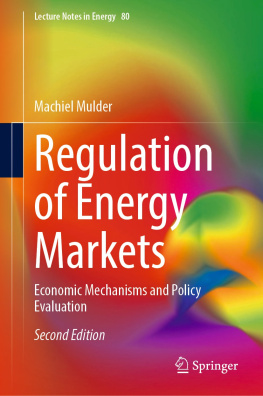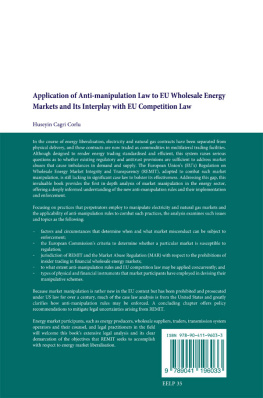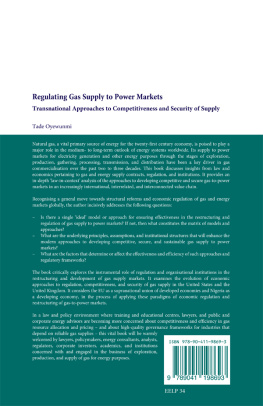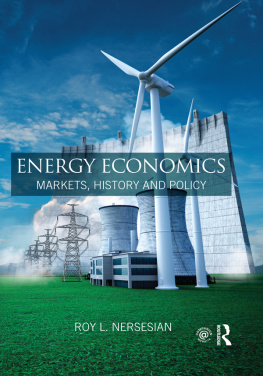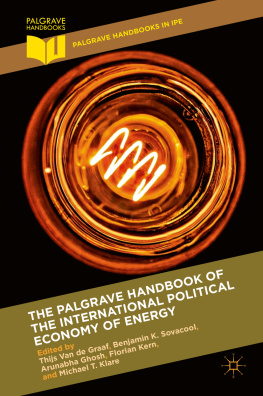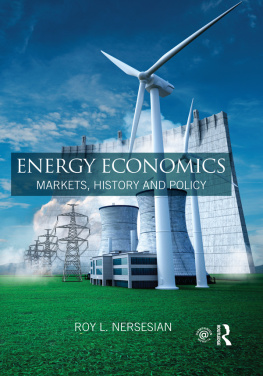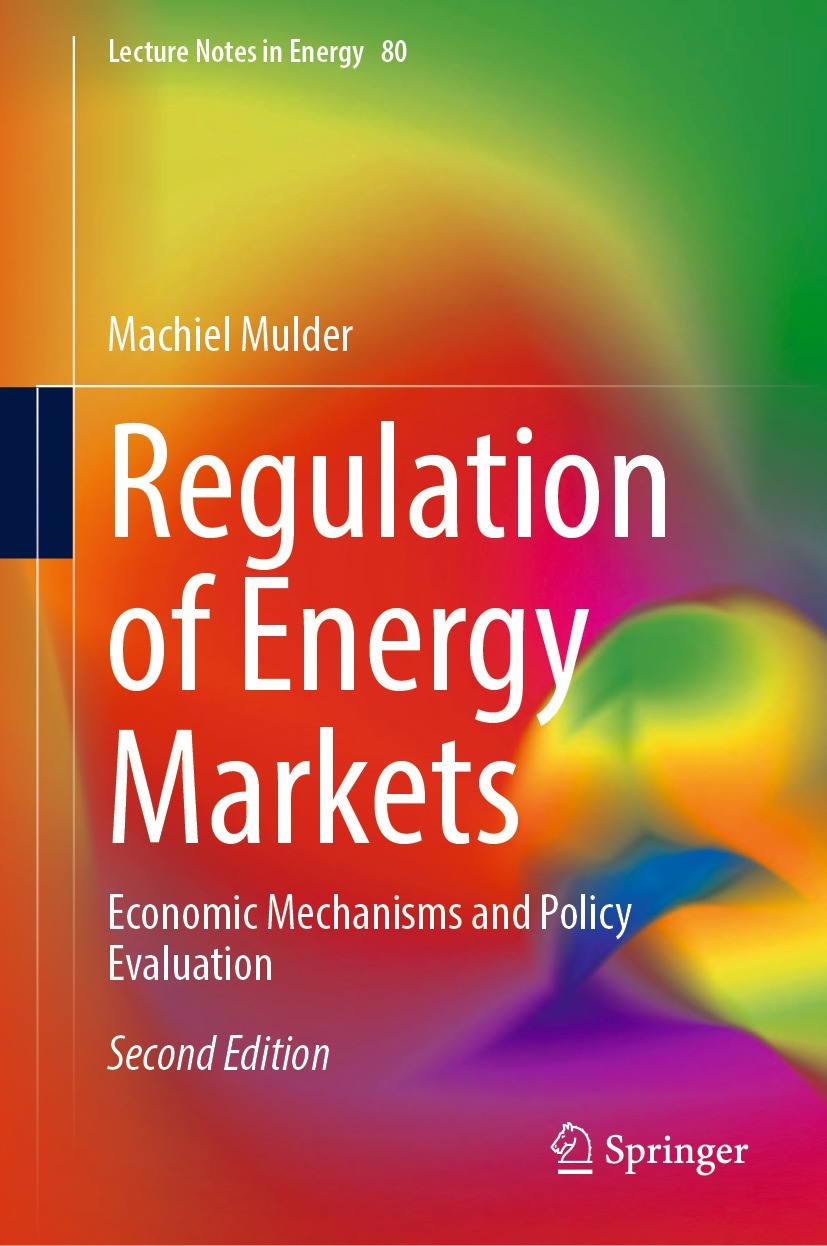Volume 80
Lecture Notes in Energy
Lecture Notes in Energy (LNE) is a series that reports on new developments in the study of energy: from science and engineering to the analysis of energy policy. The series scope includes but is not limited to, renewable and green energy, nuclear, fossil fuels and carbon capture, energy systems, energy storage and harvesting, batteries and fuel cells, power systems, energy efficiency, energy in buildings, energy policy, as well as energy-related topics in economics, management and transportation. Books published in LNE are original and timely and bridge between advanced textbooks and the forefront of research. Readers of LNE include postgraduate students and non-specialist researchers wishing to gain an accessible introduction to a field of research as well as professionals and researchers with a need for an up-to-date reference book on a well-defined topic. The series publishes single- and multi-authored volumes as well as advanced textbooks.
**Indexed in Scopus and EI Compendex** The Springer Energy board welcomes your book proposal. Please get in touch with the series via Anthony Doyle, Executive Editor, Springer (anthony.doyle@springer.com)
Machiel Mulder
Regulation of Energy Markets
Economic Mechanisms and Policy Evaluation
2nd ed. 2023

The Springer logo.
Machiel Mulder
Centre for Energy Economics Research, Faculty of Economics and Business, University of Groningen, Groningen, The Netherlands
ISSN 2195-1284 e-ISSN 2195-1292
Lecture Notes in Energy
ISBN 978-3-031-16570-2 e-ISBN 978-3-031-16571-9
https://doi.org/10.1007/978-3-031-16571-9
The Editor(s) (if applicable) and The Author(s), under exclusive license to Springer Nature Switzerland AG 2021, 2023
This work is subject to copyright. All rights are solely and exclusively licensed by the Publisher, whether the whole or part of the material is concerned, specifically the rights of translation, reprinting, reuse of illustrations, recitation, broadcasting, reproduction on microfilms or in any other physical way, and transmission or information storage and retrieval, electronic adaptation, computer software, or by similar or dissimilar methodology now known or hereafter developed.
The use of general descriptive names, registered names, trademarks, service marks, etc. in this publication does not imply, even in the absence of a specific statement, that such names are exempt from the relevant protective laws and regulations and therefore free for general use.
The publisher, the authors, and the editors are safe to assume that the advice and information in this book are believed to be true and accurate at the date of publication. Neither the publisher nor the authors or the editors give a warranty, expressed or implied, with respect to the material contained herein or for any errors or omissions that may have been made. The publisher remains neutral with regard to jurisdictional claims in published maps and institutional affiliations.
This Springer imprint is published by the registered company Springer Nature Switzerland AG
The registered company address is: Gewerbestrasse 11, 6330 Cham, Switzerland
Preface
As energy is a crucial commodity in modern societies, its important to understand how to realize its optimal allocation across alternative utilisations. In principle, when energy markets would function according to microeconomic textbooks, there is no need to intervene. After all, well-functioning markets automatically find the optimal allocation and, hence, generate the maximum welfare. Energy markets, however, are quite different from this theoretical benchmark of perfectly functioning markets. Energy markets generally suffer from a large number of fundamental shortcomings, which are called market failures. These shortcomings include the presence of information asymmetry between consumers and producers in retail energy markets, the presence of natural monopolies in the transport through networks, the public-good character of reliability of energy supply, the presence of negative externalities related to the consumption of fossil energy, and the ability of suppliers to behave strategically and raise market prices.
Because of these market failures, policy intervention in energy markets may be helpful to improve the allocation. This intervention is called sector-specific regulation. This regulation includes measures such as rules regarding information provision to residential consumers, rules on the maximum tariffs that network operators may charge, incentives for network users to pay attention to the consequences of their behaviour for the balance of energy systems, incentives for producers of energy to use more renewable energy and measures to enlarge the market in order to mitigate the ability of dominant firms to abuse market power.
The search for the optimal regulation of energy markets is the topic of this textbook. This book is the result of more than 20 years of experience in the field of the economic analysis of energy markets. At 1 January 2000, I became Head of the Energy department of the Netherlands Bureau for Economic Policy Analysis (CPB), after a career in the field of environmental, agricultural and small-business economics. Since then, encouraged by its complexity and societal relevance, I have worked (more than) full time on the application of energy economics to policy making. I am grateful that I was able to do this at various positions, not only at the CPB, but also at the environmental consultancy CE-Delft and the Authority for Consumers and Markets (ACM), which is the competition authority and regulator of, among others, the Dutch energy markets. This experience has provided me in-depth insight in the actual functioning of energy markets as well as the actual political decision-making in practice. The list of people I have worked with in this period and who contributed to my pleasure of working in and knowledge of this field is extensive. I am grateful to all of them.
In all my previous positions, I worked on the bridge between academic research and practical application in policy making. Gradually, however, my focus shifted fully to the academic world. In 2013, I became, initially part-time next to my position at the ACM, full Professor of Regulation of Energy Markets at the Faculty of Economics of Business of the University of Groningen. I am still grateful to both the board of the ACM and the board of the university for their support. A year later, I started teaching my M.Sc. course called Economics of Regulating Markets. For both my students and me, this was a new experience. Students were less used to get a course that was not directed at developing theoretical concepts, but that applies these concepts to actual problems in the field of energy. According to the course evaluations, students did like the course, which motivated me to further develop the course materials. Initially, these materials mainly consisted of my lecture slides, notes on the weekly assignments and a number of scientific articles. Already in the first year of this course, students asked for a textbook in which all the topics were systematically and carefully described. Although many textbooks in the field of energy economics have been published, a textbook on the regulation of energy markets combining theoretical economic concepts and practical applications did not exist. Therefore, I decided to write it myself. Though, it took some time before I really started, because of many other activities, such as the organization of the International Conference of the International Association for Energy Economics (IAEE) in Groningen in June 2018 and the organization of the multidisciplinary full-time Energy Minor at the University of Groningen. At the IAEE conference in Groningen, however, I shared my plan with Barbara Fess of Springer, who responded very positively. She introduced me to her colleagues Johannes Glaeser and Judith Kripp, who were equally positive about the idea. They have guided me throughout the process of writing the first edition of this textbook in a highly pleasant way, for which I am very grateful. I also thank Sudhany Karthick of Springer Publishing Services for carefully managing the production process of the first edition and for doing the same for the second edition.

